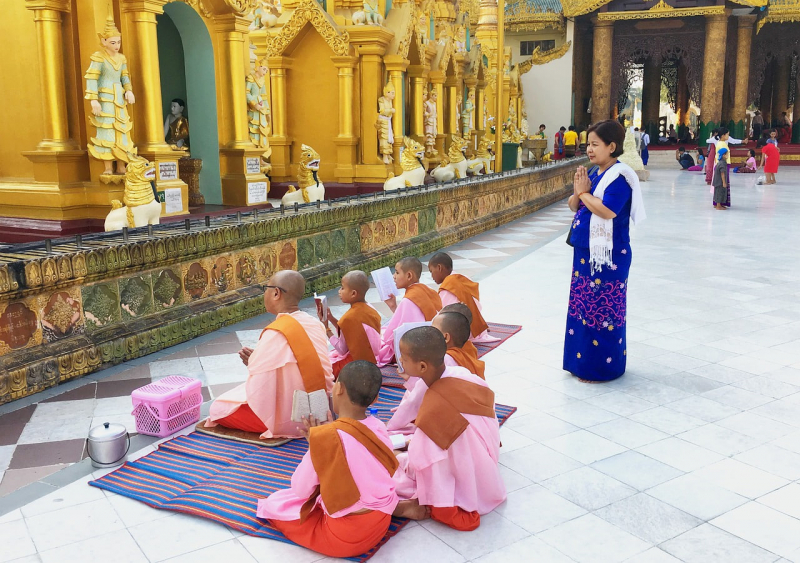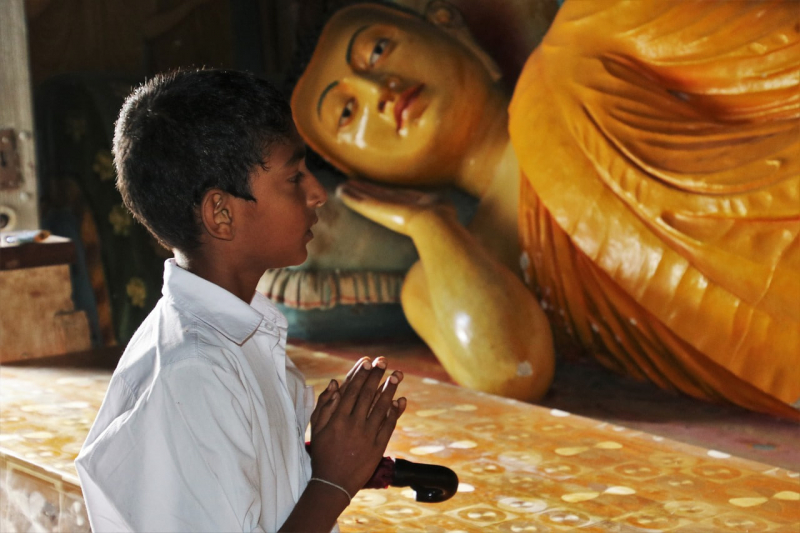Veneration
Veneration towards Buddhas is a core aspect of Buddhist practice, especially in Mahayana and Vajrayana traditions. This practice entails demonstrating profound reverence, respect, and unwavering devotion to the historical Buddha, Siddhartha Gautama, and other enlightened entities, bodhisattvas, and deities within the Buddhist pantheon. Such veneration operates as a conduit for expressing gratitude, seeking guidance, and nurturing virtues such as humility and compassion.
The prevalent forms of veneration encompass practices such as generating merit, engaging in bows of reverence, presenting offerings, reciting chants, contemplating the virtues personified by particular buddhas or bodhisattvas (such as compassion and wisdom), and embarking on pilgrimages. These acts of veneration are typically undertaken as gestures of deep respect.
Furthermore, adherents deeply revere bodhisattvas, seeking their aid and counsel. Buddhist devotional customs are enacted in spaces where representations or sculptures of Buddhas or bodhisattvas are situated (typically within temples or homes). The enthusiasm for divine acts is intensified during Uposatha days and annual festivals.
Veneration toward Buddhas is a manifestation of faith and a mechanism for nurturing virtues such as gratitude, humility, and unwavering devotion. This practice aids individuals in developing a sense of spiritual connection. It serves as a reminder of the ultimate goal in Buddhism: attaining enlightenment for the benefit of all sentient beings.












